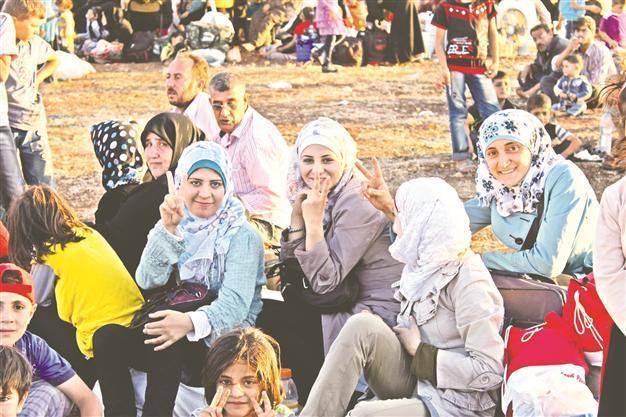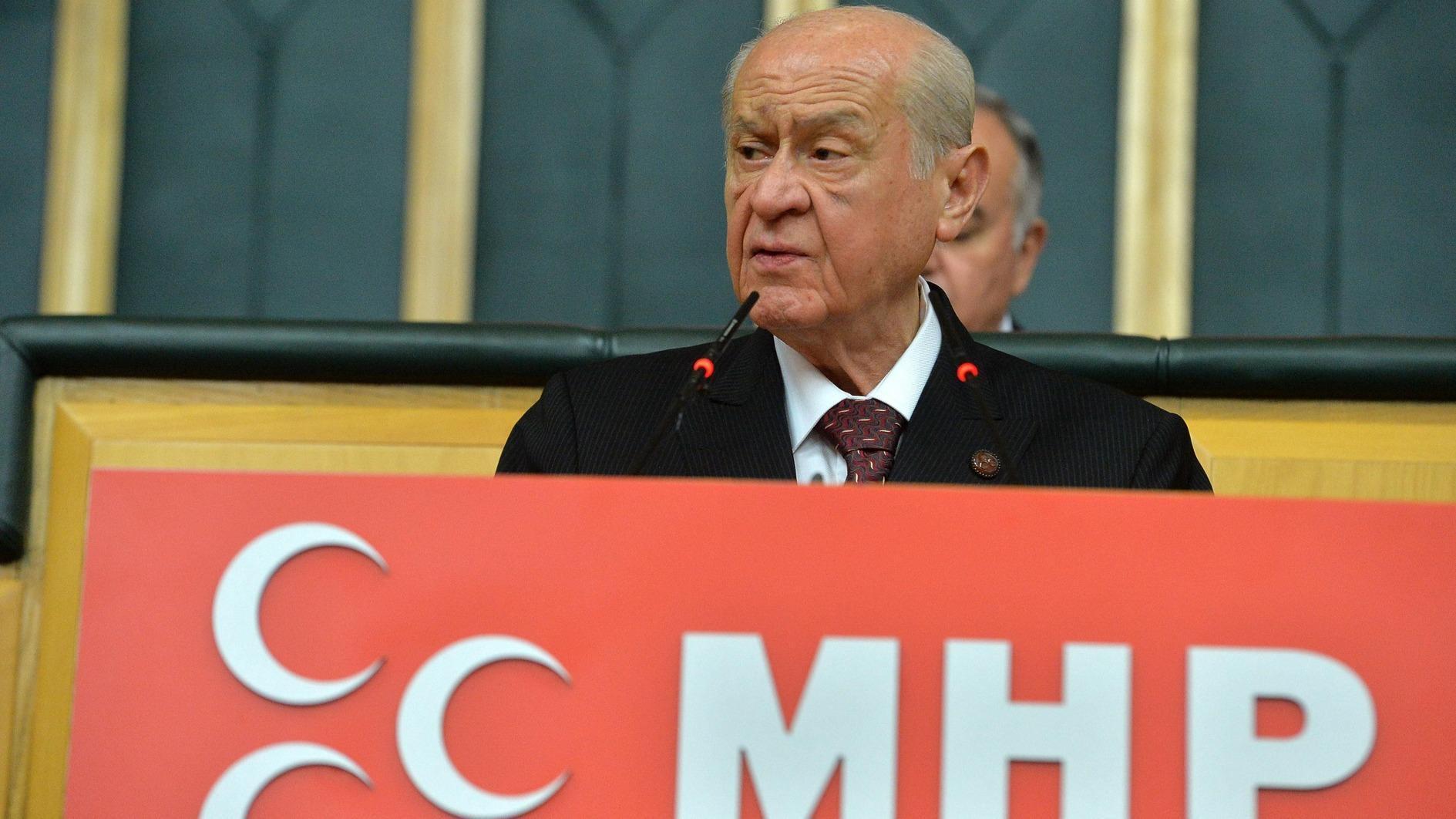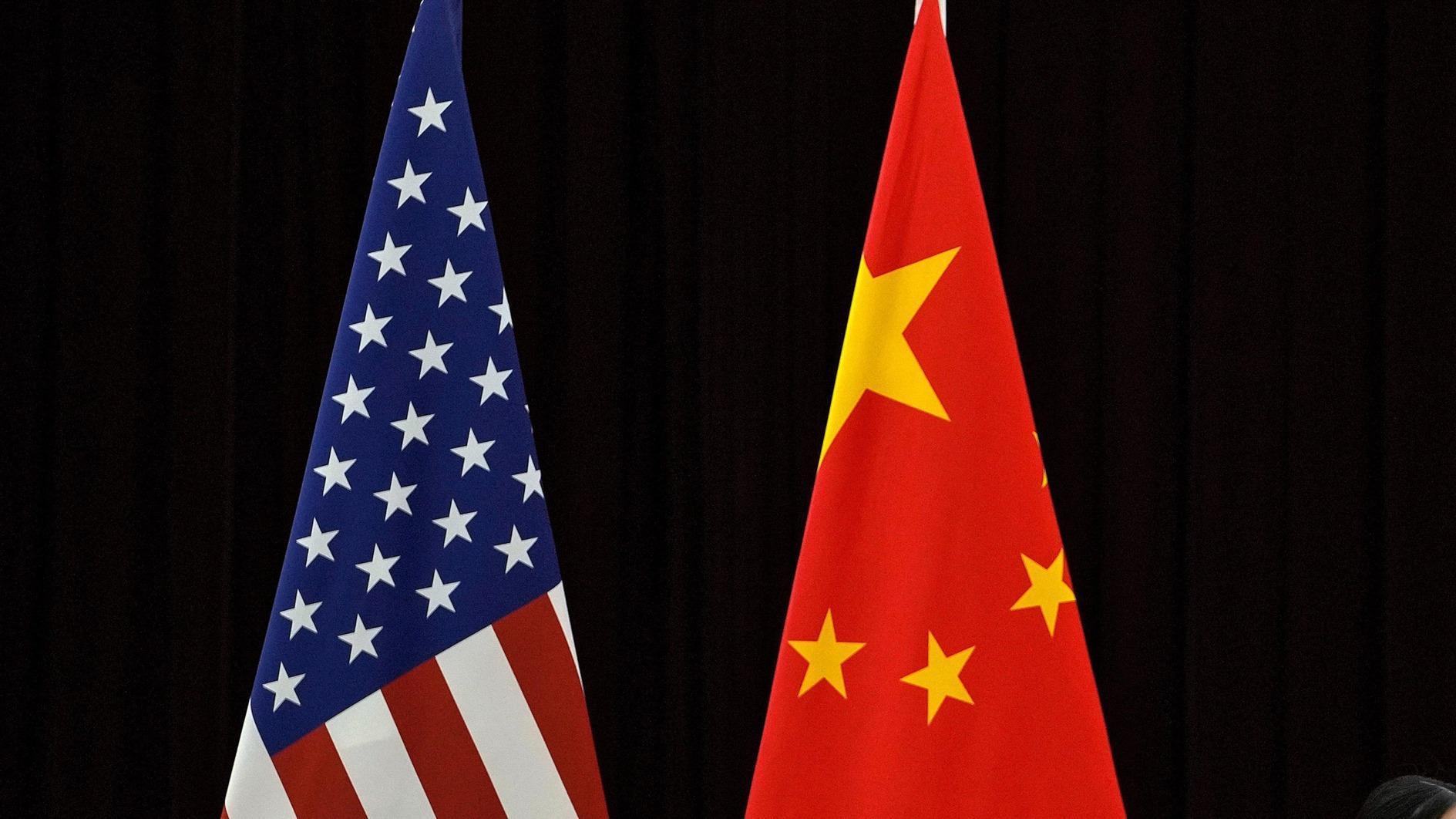Turkey and US finalize plans, awaiting decision
KARA

Syrian women, who entered Turkey fleeing from violence in their country, make victory signs. The number of Syrian refugees in Turkey exceeds 78,000 with recent flows. AA photo
With the number of Syrian refugees crossing the border exceeding 78,000 – around 20,000 under the limit Turkey had introduced – Turkish and American delegations concluded a day of talks aimed at coordinating efforts in the transitional period in Syria late Aug. 23.Despite the fact that the two have worked on contingency plans including the possible establishment of security zones, the decision for implementation will have to be given in due course by the two countries’ governments when the need arises.
“This was not a meeting to take political decisions. We have reviewed everything concerning Syria,” diplomatic sources told reporters. The two sides also analyzed ways to increase their help to the Syrian opposition to President Bashar al-Assad and provide orderly humanitarian relief to victims.
The first operational planning meeting was carried out in Ankara with the participation of Turkish and American diplomats as well as defense and intelligence officials, under the leadership of ambassadors Halit Çevik and Elisabeth Jones. No official written statement was made after the meeting, which will be followed by others in the coming weeks.
The only official statement came from Washington late Aug. 23. State Department spokeswoman Victoria Nuland said the Ankara talks focused on the transition to a post-al-Assad Syria, along with ways to support the opposition and to handle refugees. “This is designed to go deeply on the full range of contingencies that one might confront,” Nuland told reporters in Washington. “And we are looking at every feasible option in terms of what we might do together to evaluate whether it will advance our shared goal of hastening the transition or not,” she said, declining to provide further details.
Disposing Assad weapons
In a post-al-Assad Syria, “the international community will want to offer the Syrian people support for managing and disposing of some of the al-Assad regime’s most dangerous weapons,” she said.
The most important issue discussed by the two teams was providing more influential coordination in the humanitarian and logistical assistance to the Syrian opposition. The intelligence services will be more actively involved in efforts to this end, sources said, without elaborating further.
Turkey’s plan to host Syrians within the Syrian border was also discussed, but as the plan envisages the engagement of military elements, the U.S. does not see it as implementable at this stage. Instead, Washington prefers a more coordinated relief effort to extend aid to refugees inside Syria.
Believing that al-Assad will soon be deposed, the two teams reviewed plans for an orderly regime transition to avoid fresh internal ethnic or sectarian clashes. Measures against the potential use of chemical and biological weapons, and against terror organizations like the Kurdistan Workers’ Party (PKK) and al-Qaeda exploiting the power vacuum in Syria were also addressed at the meeting.
















